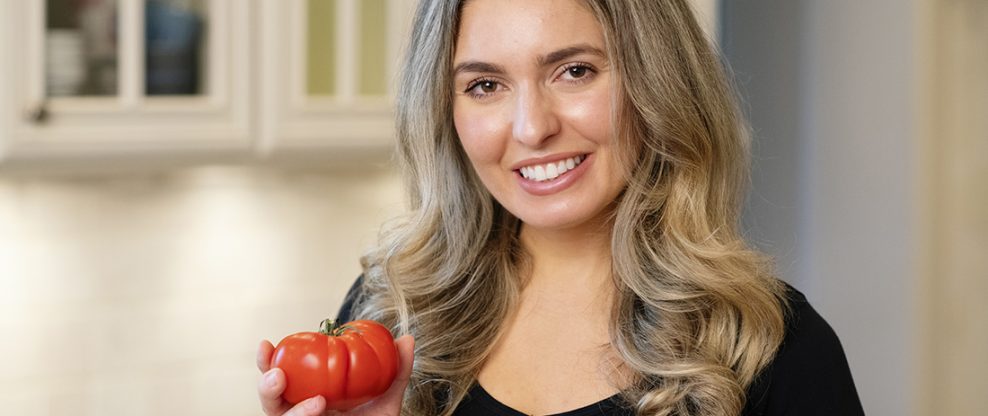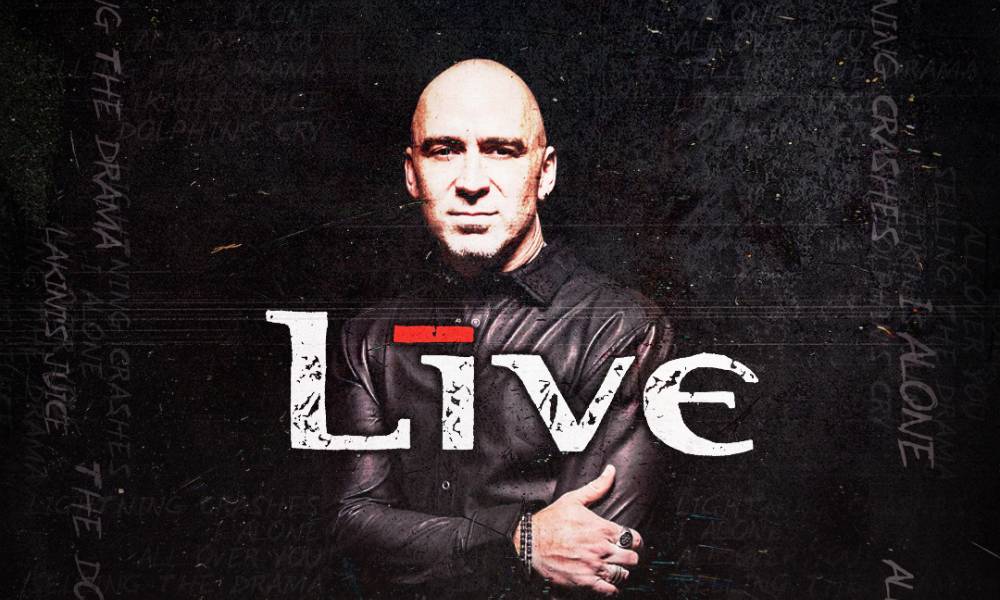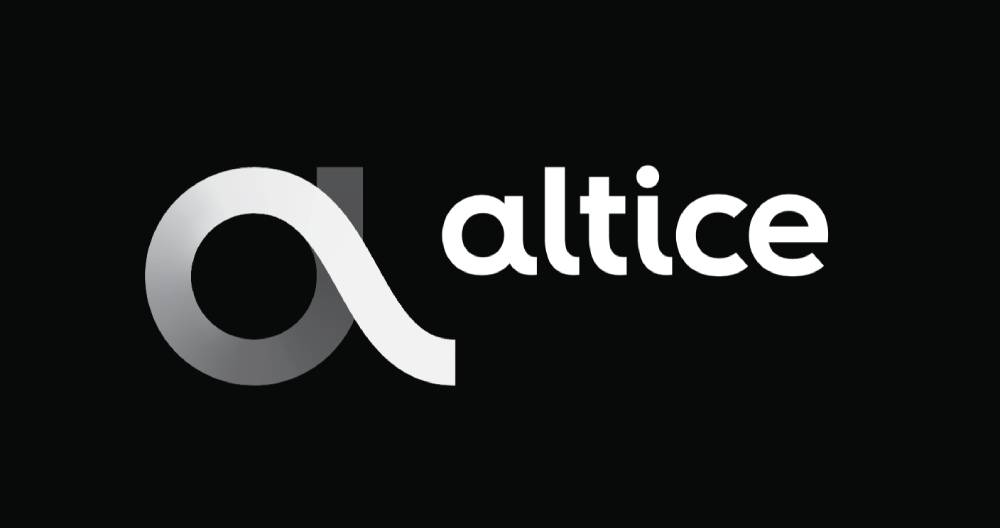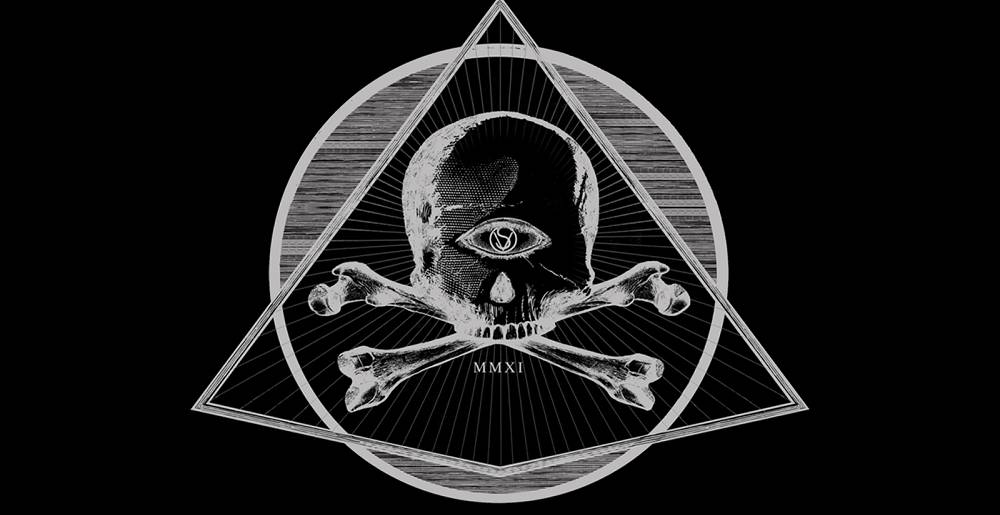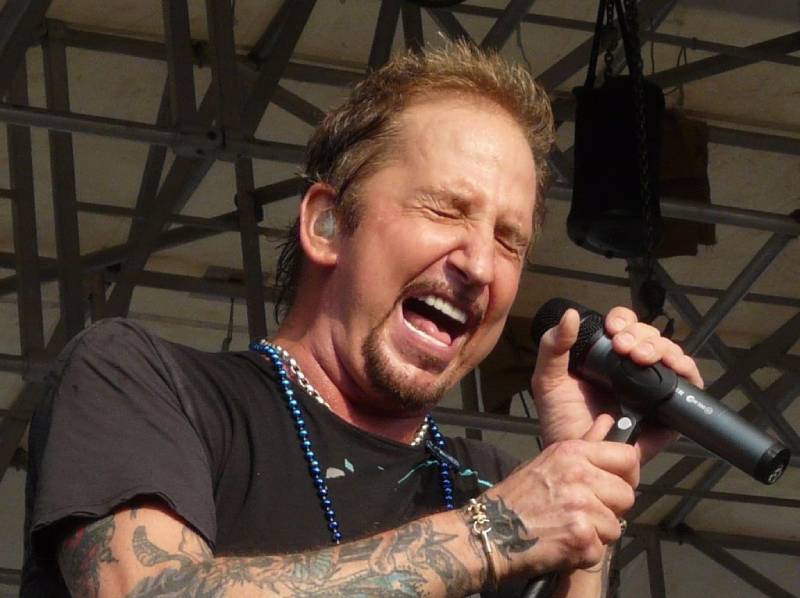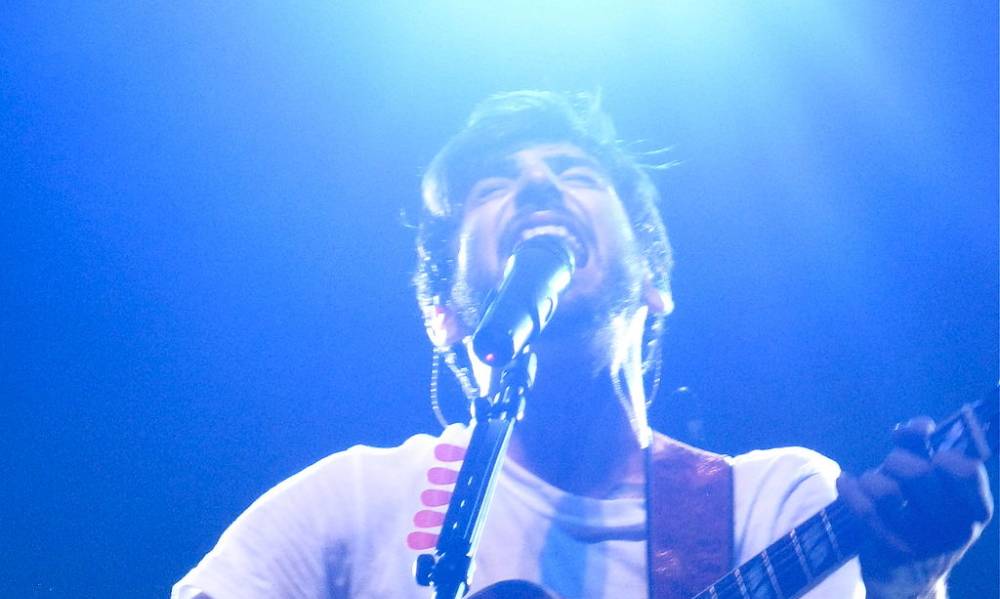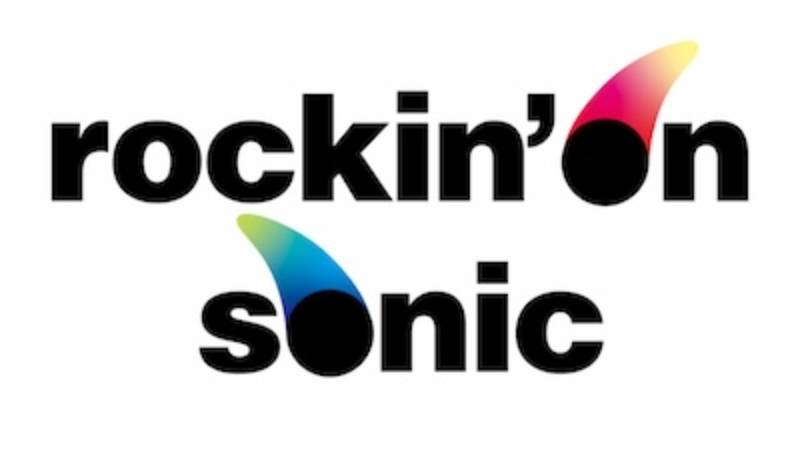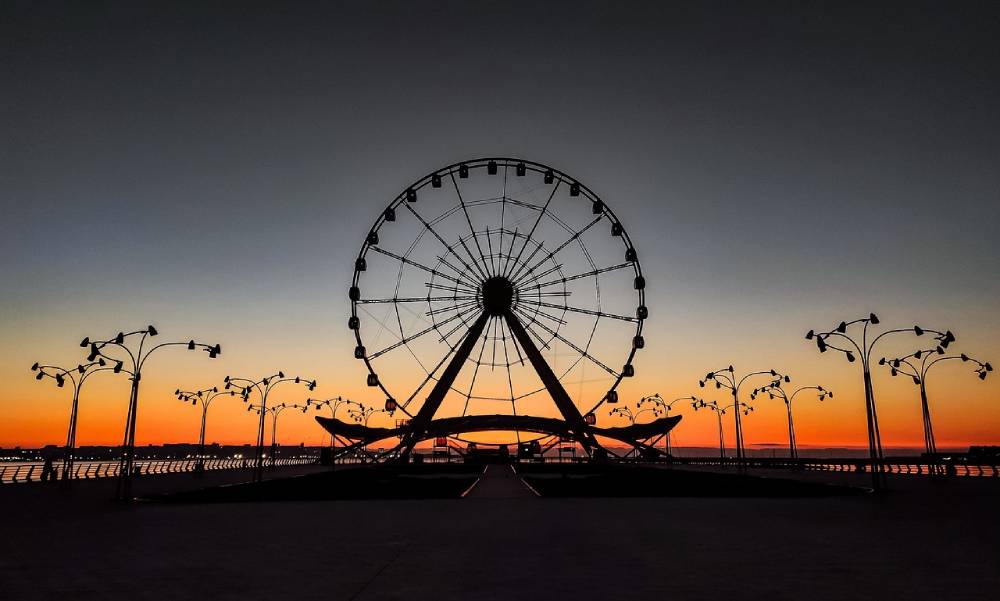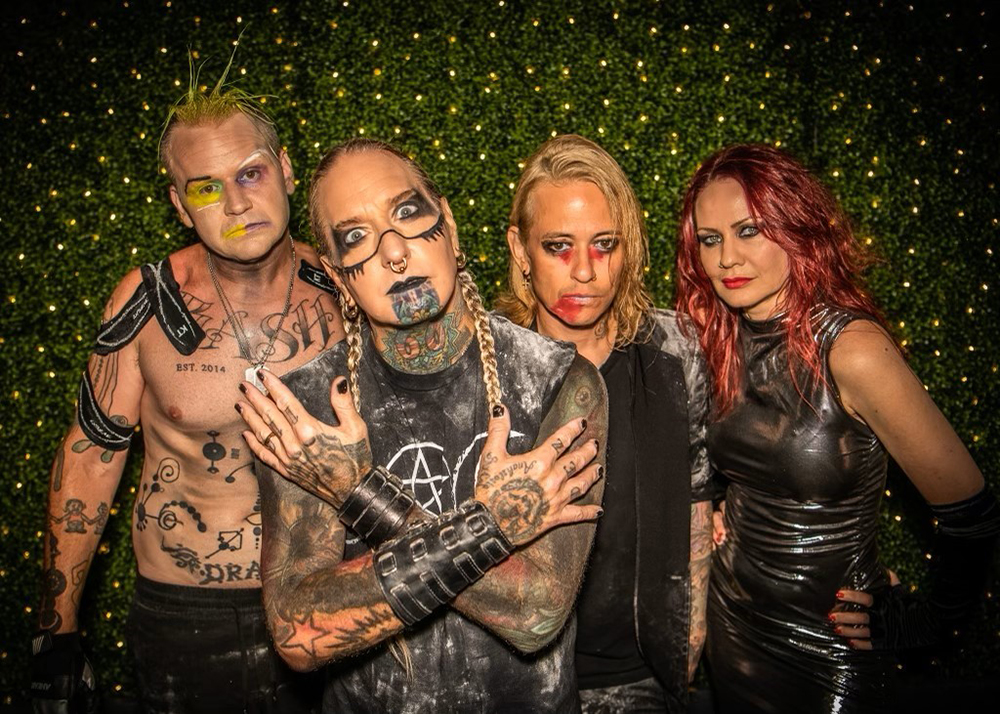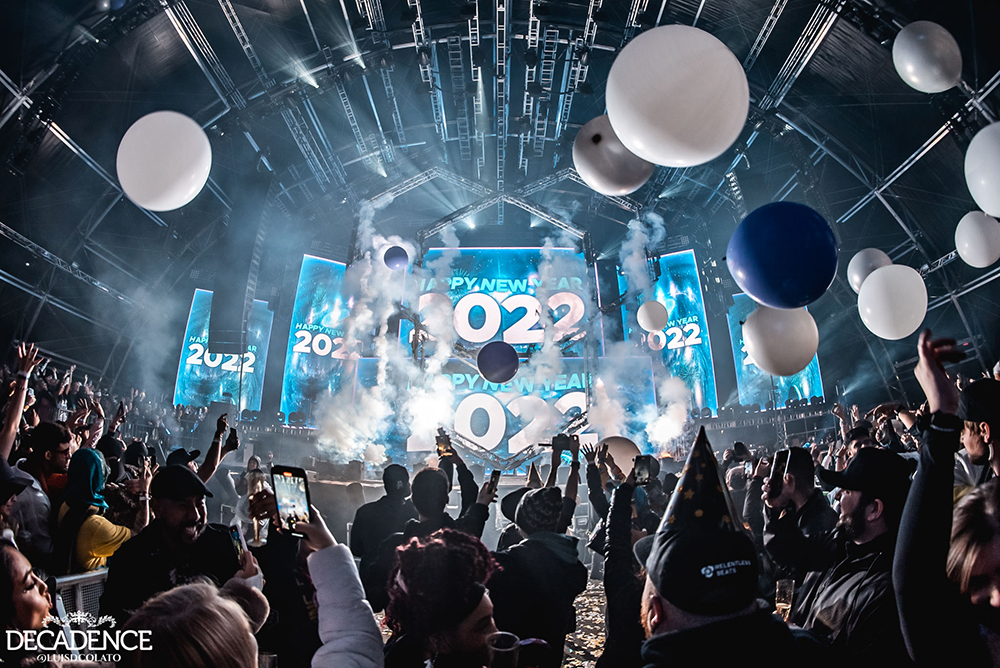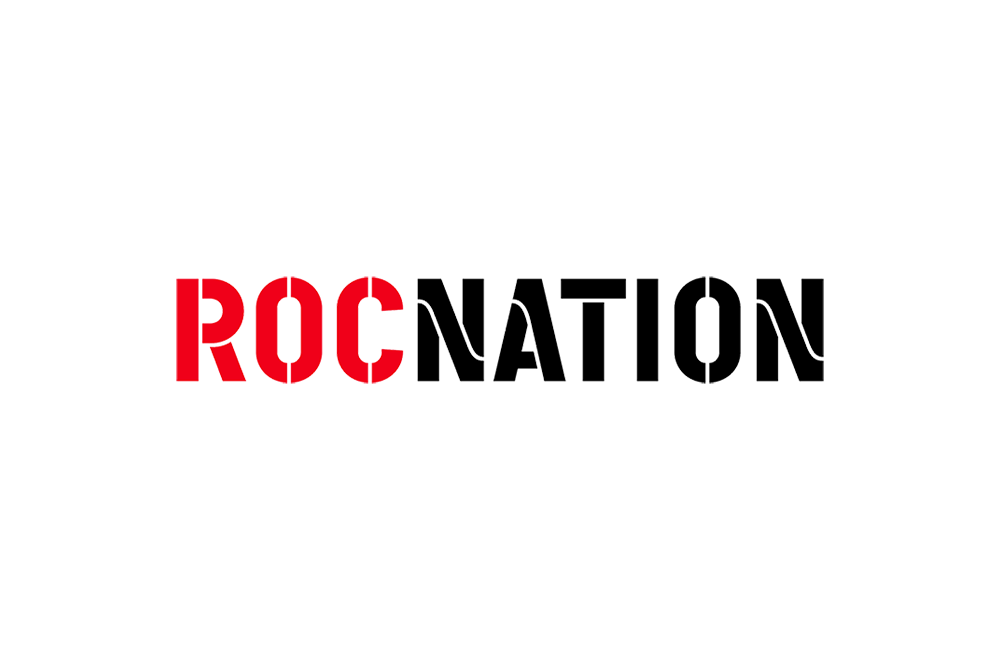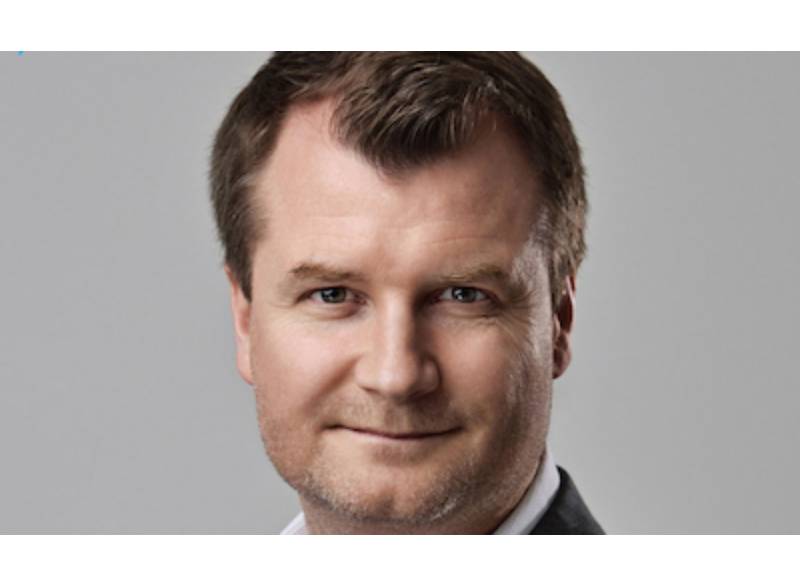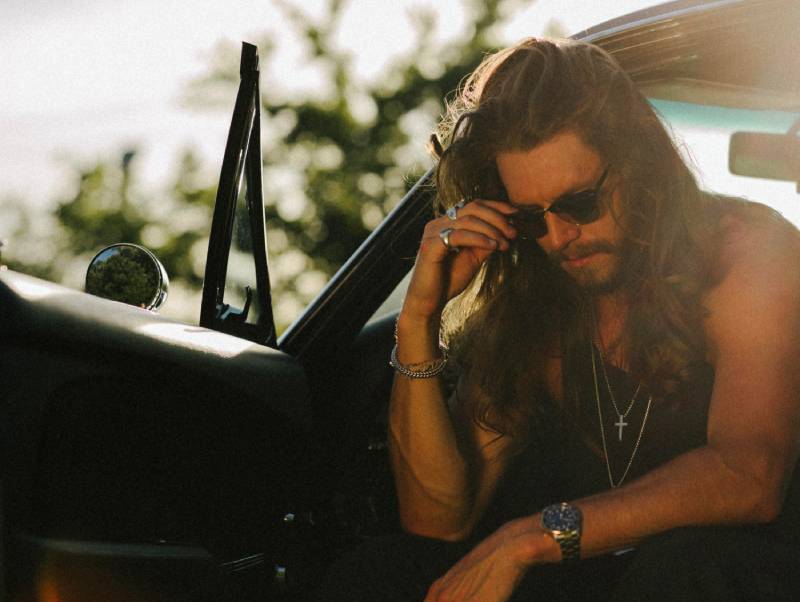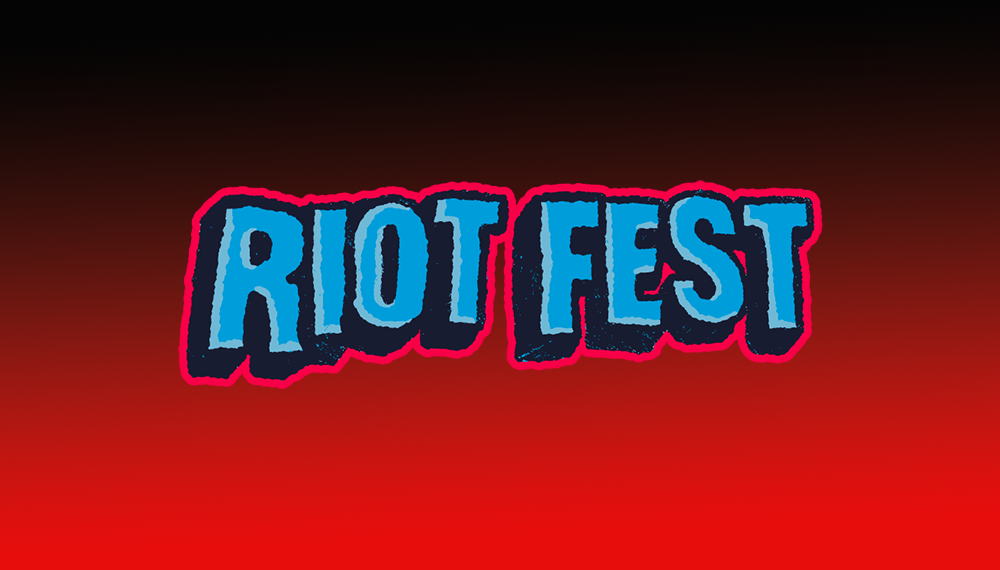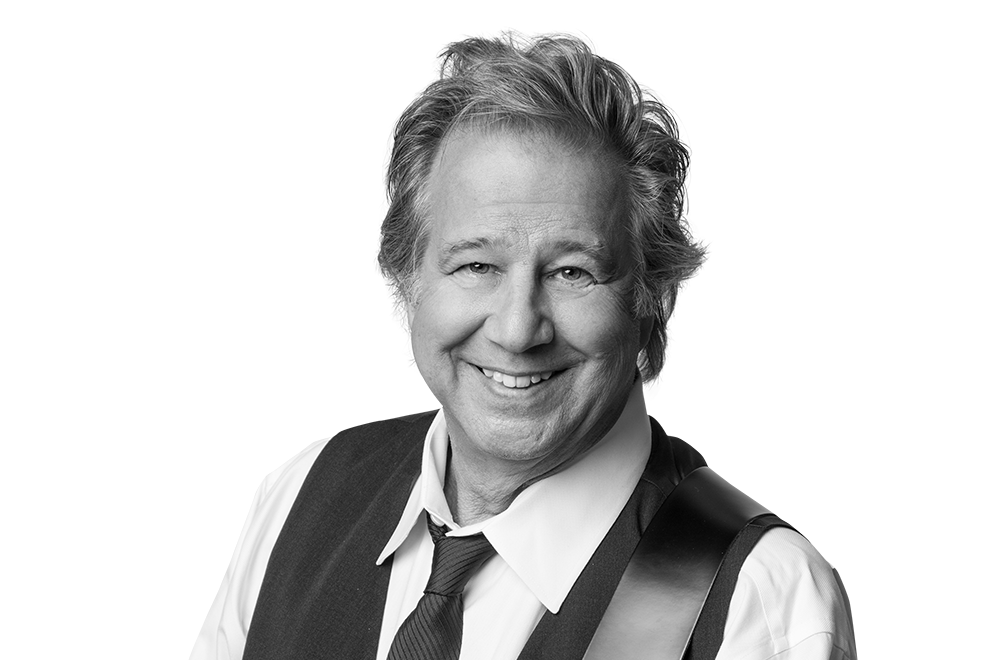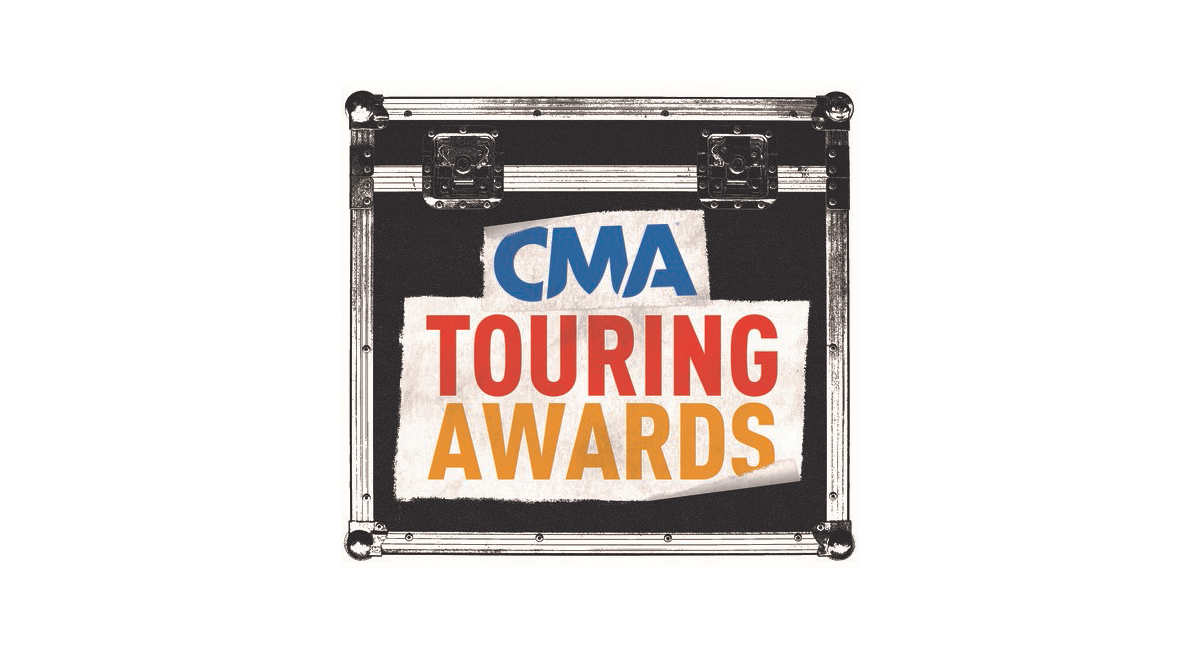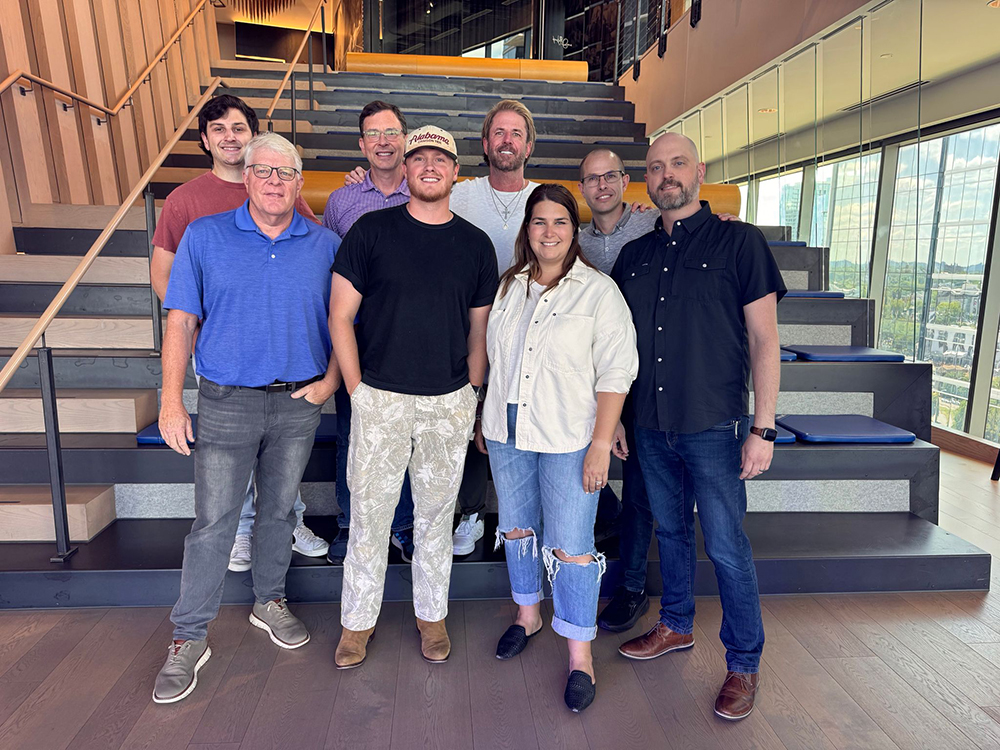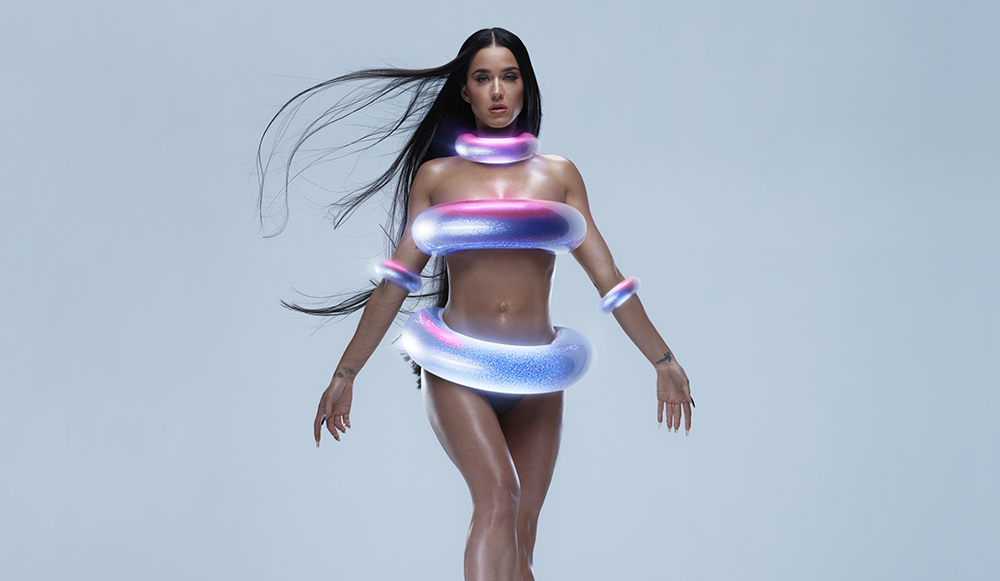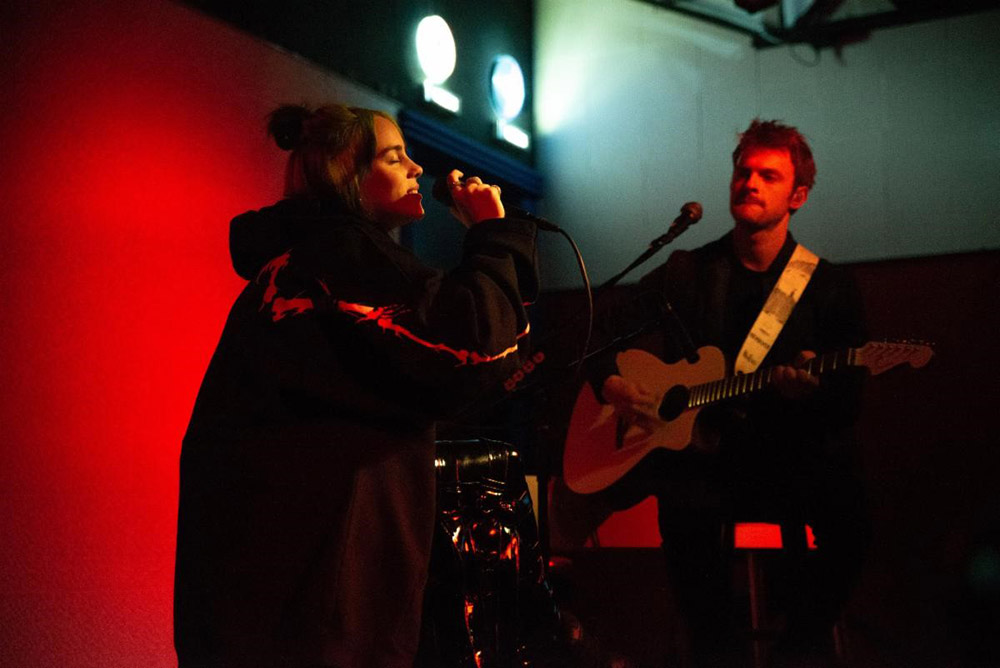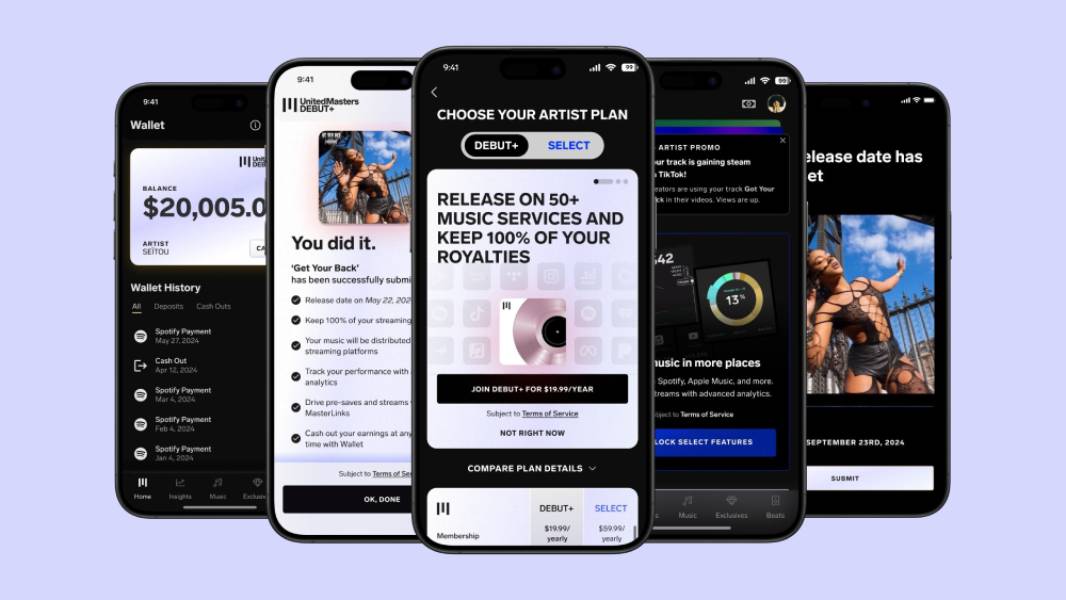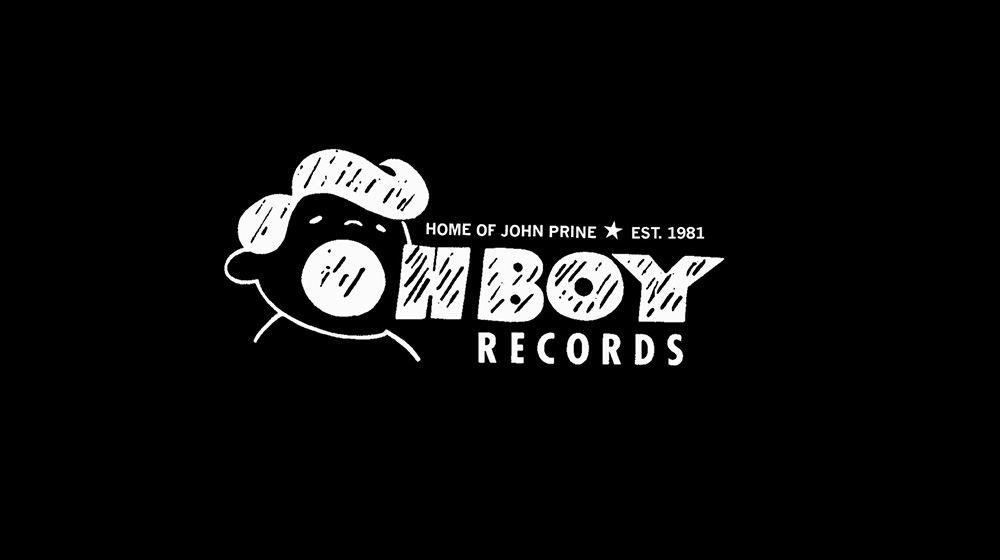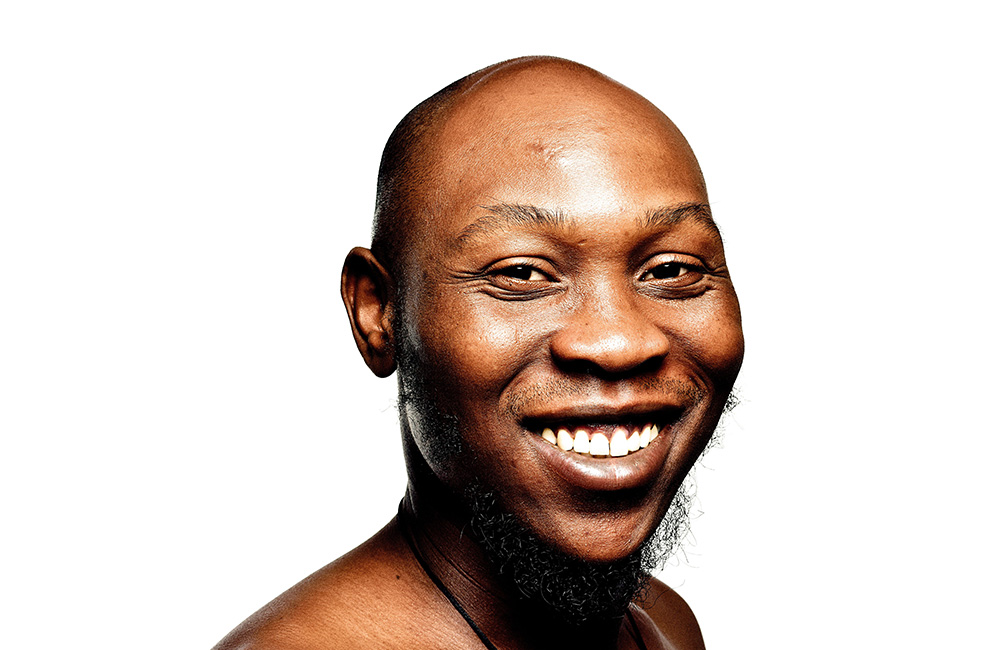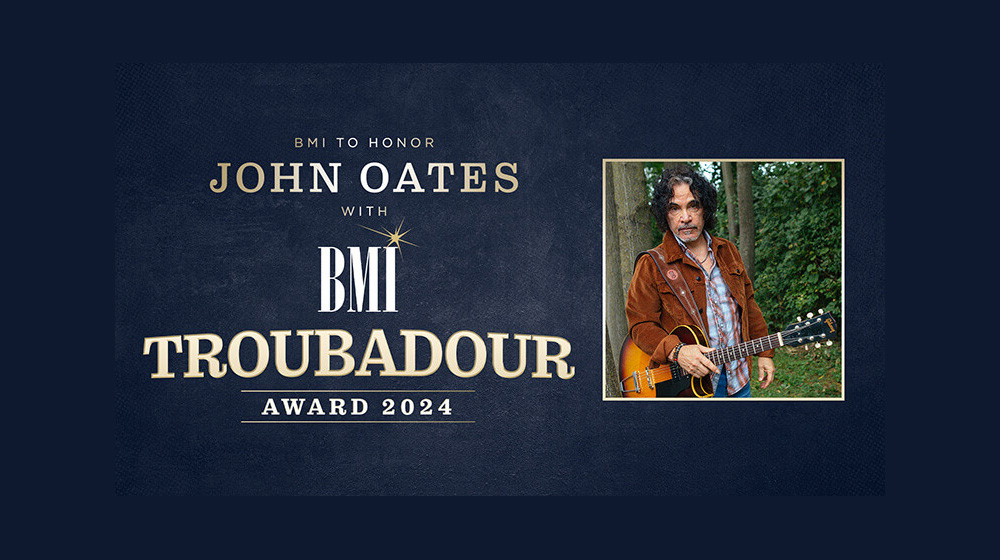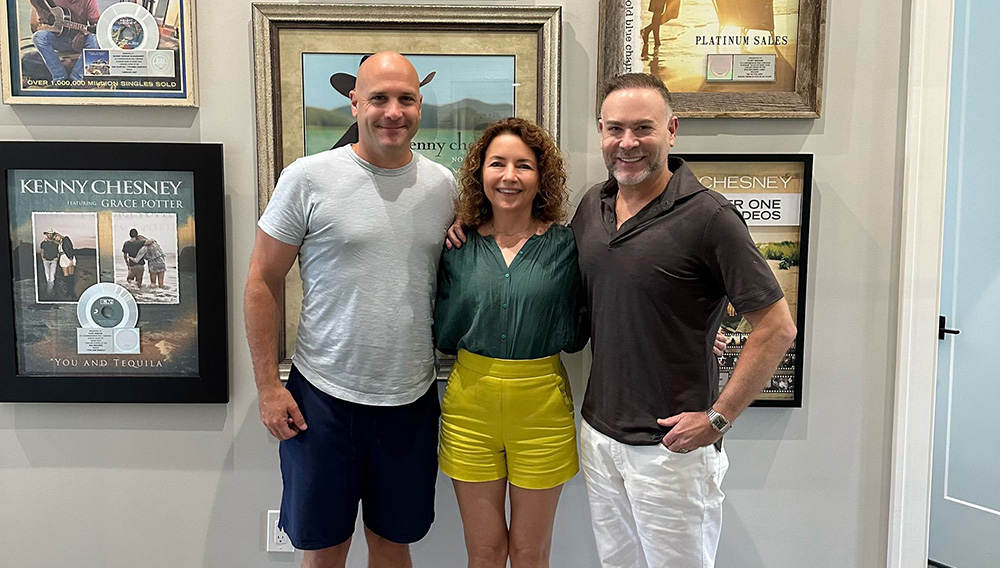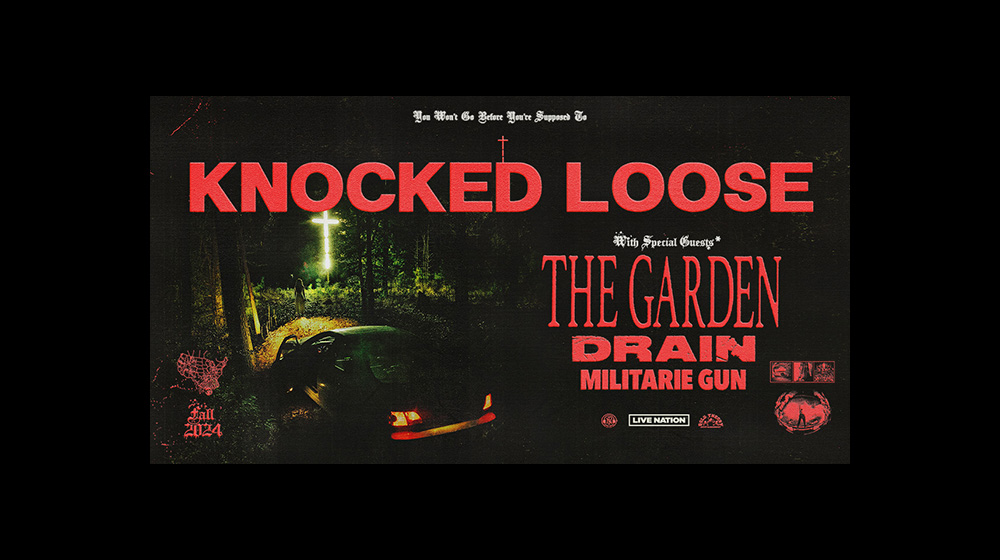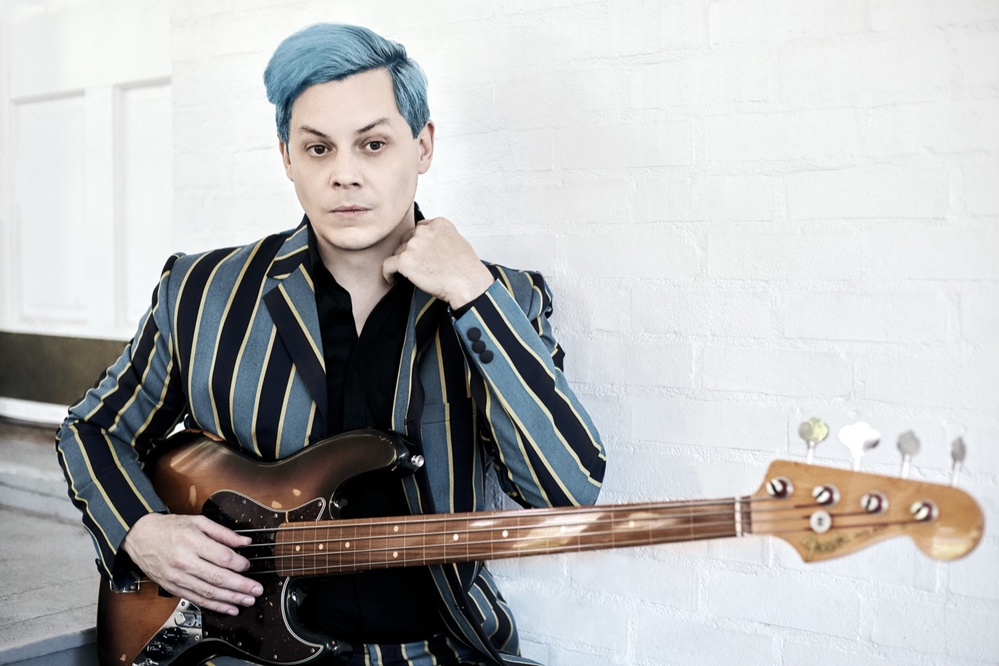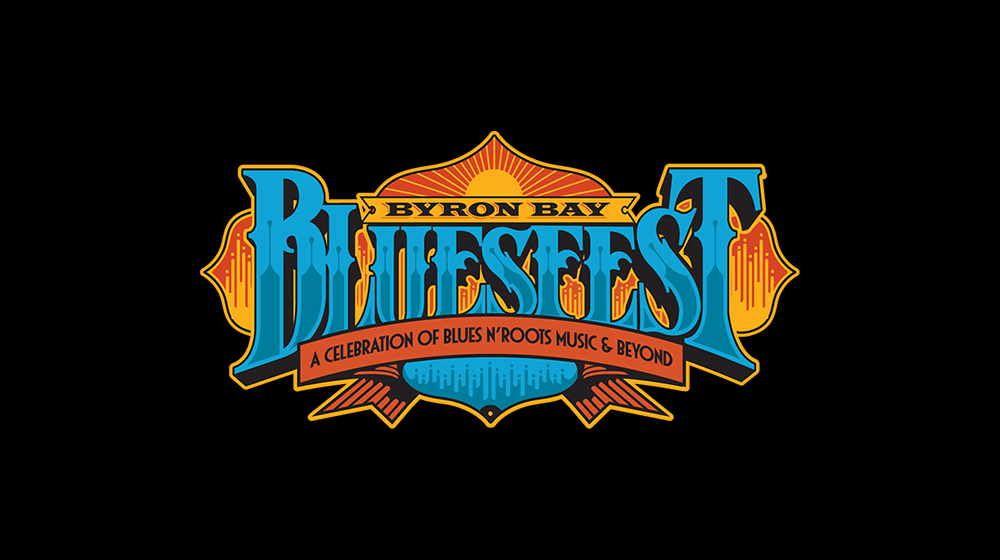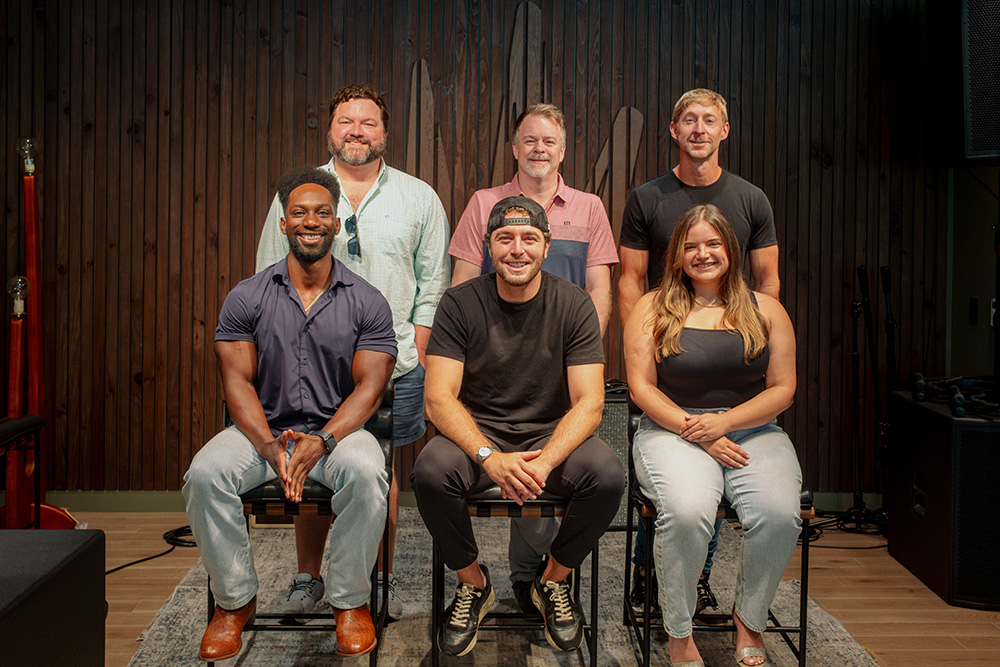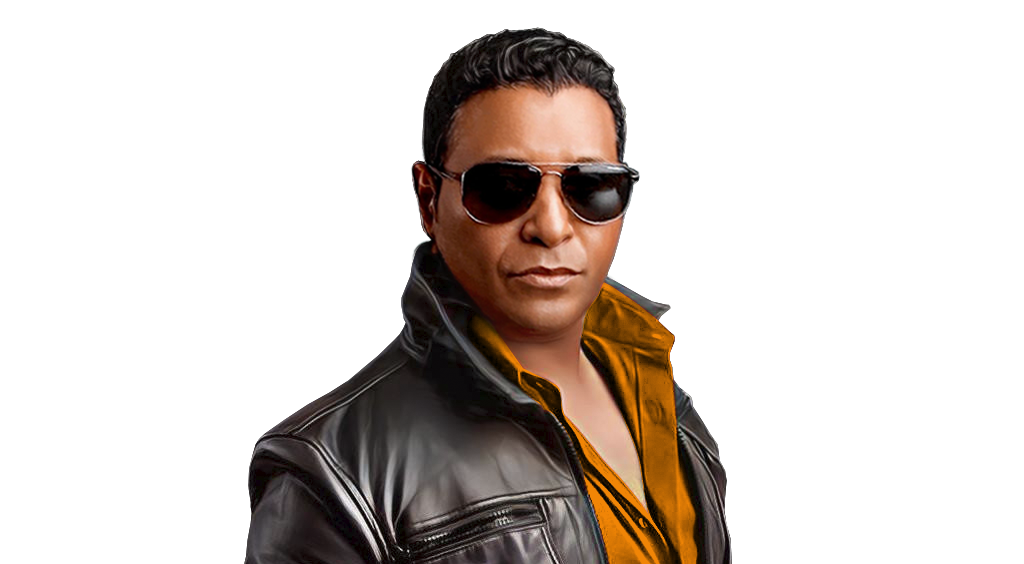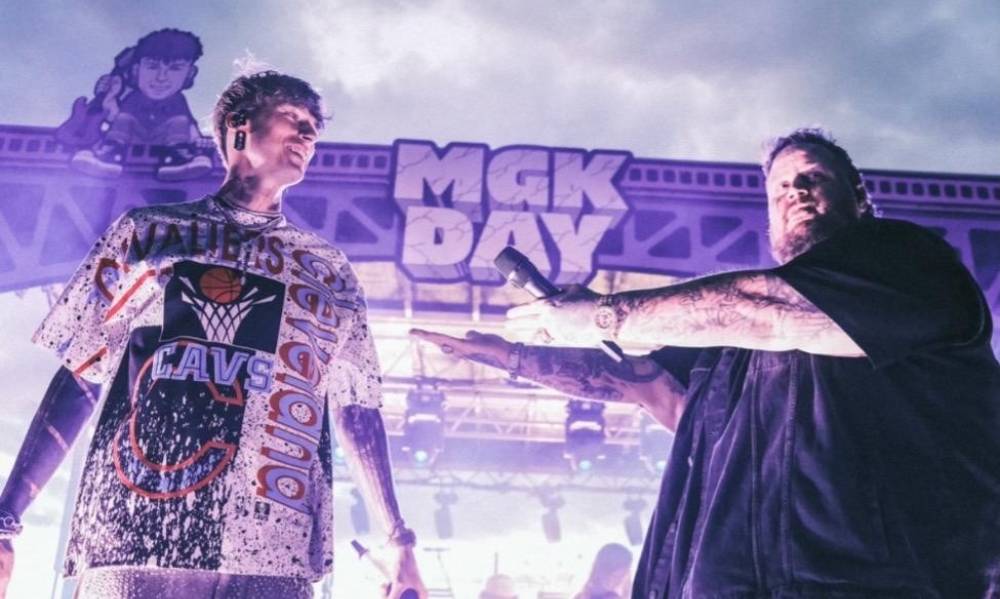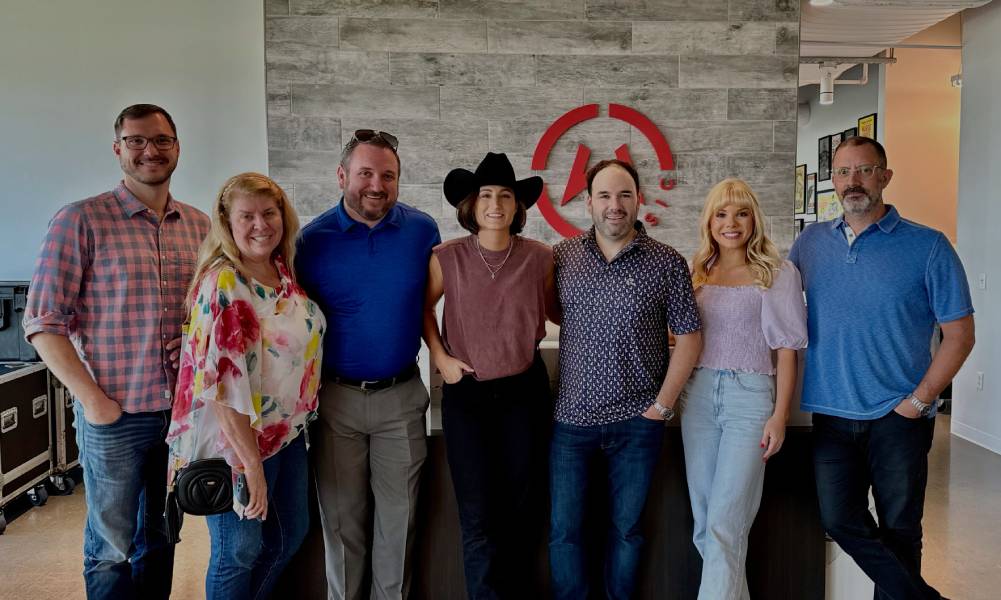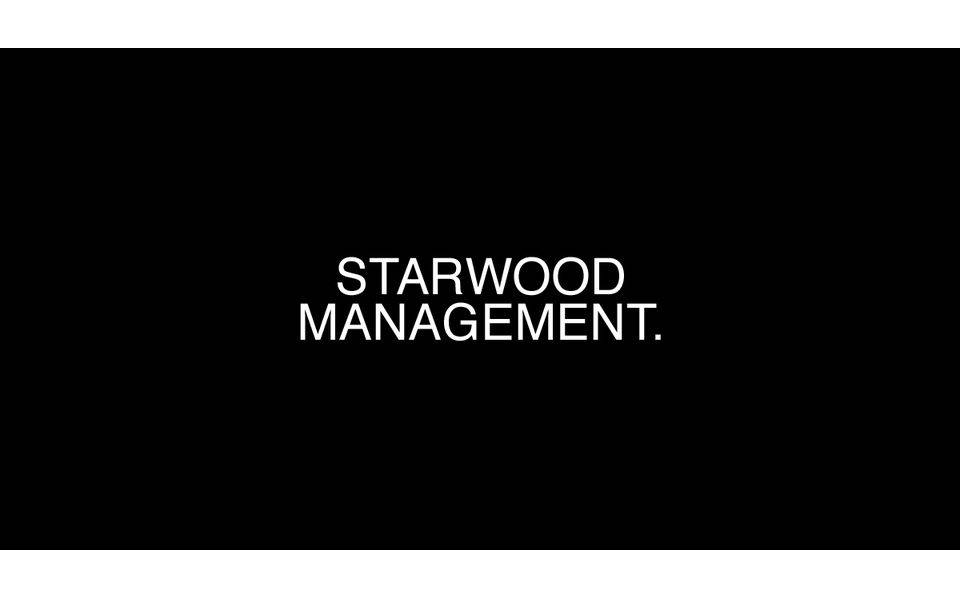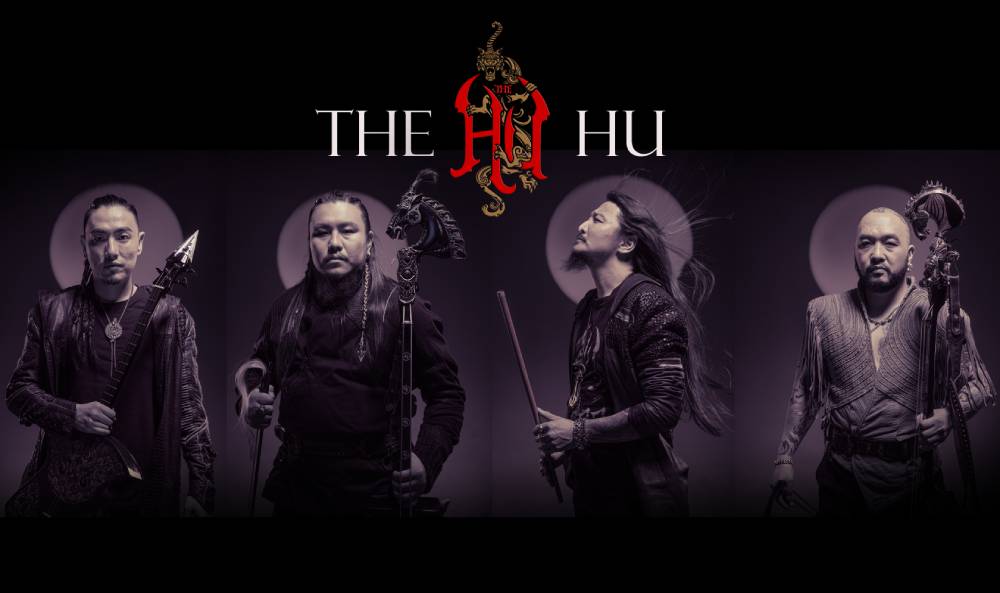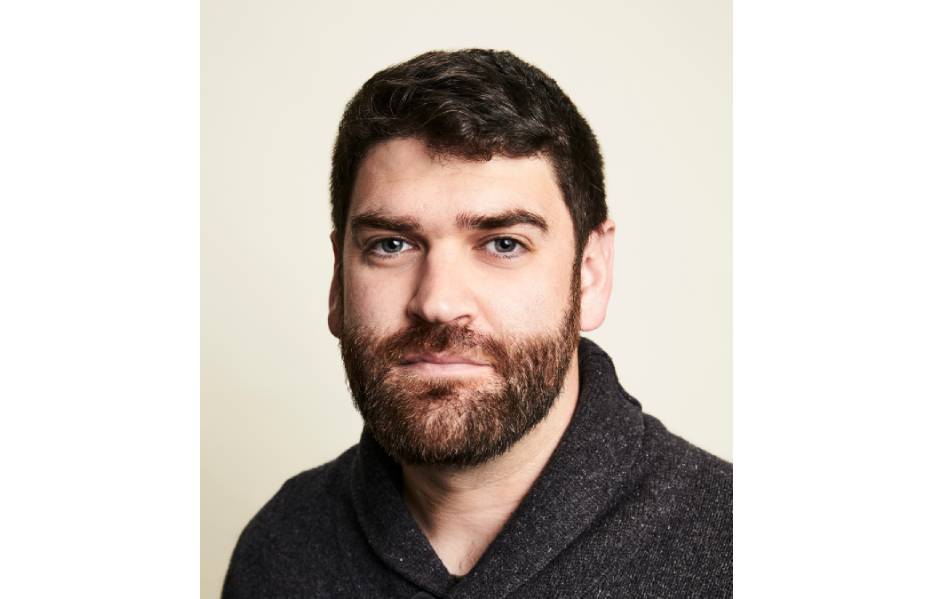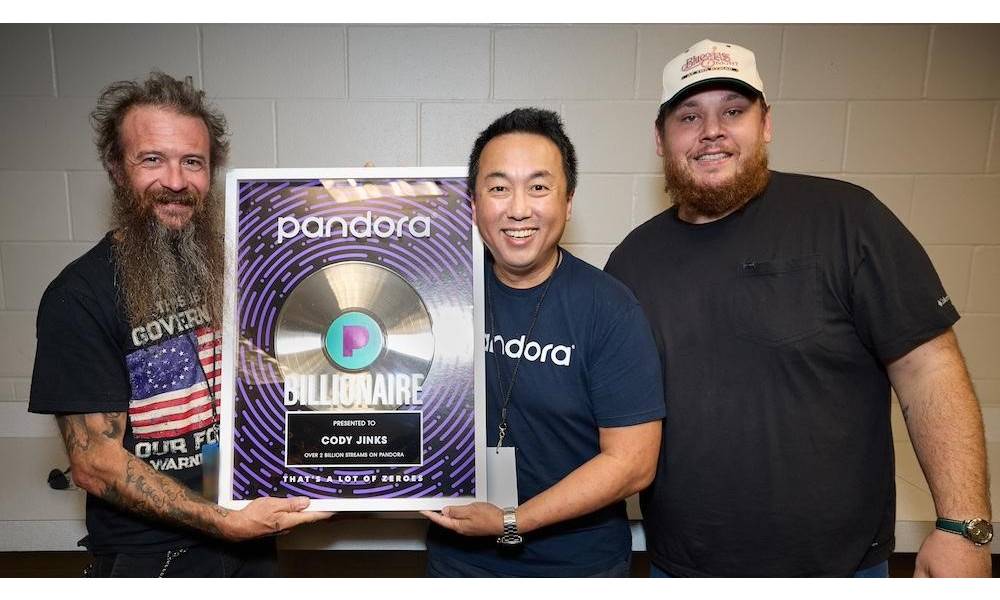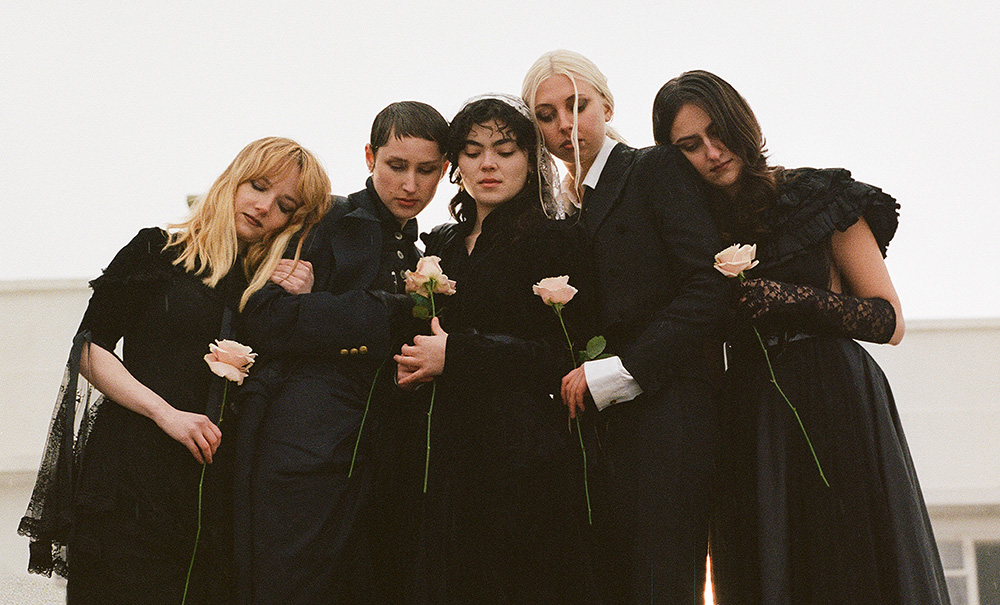This week In the Hot Seat with Larry LeBlanc: Emmaline Rasmussen, Founder, Sound Nutrition.
Anyone in the music industry has long been aware that artists and their crews, fighting the demons of touring–the long hours, the unsocial scheduling, the insane demands, and late-night eating at roadside food stops–could be doing so in a healthier environment.
The data is there that artists have fewer canceled shows, and less illness when they are eating well, and when they are exercising.
That if the industry supported their artists, and their employees in maintaining healthy habits, as well as supported wellness, and their physical and mental health more effectively, that would then enable them to not only have more balanced lives but also to perform at a higher level, especially while on tour.
Sound Nutrition’s founder Emmaline Rasmussen has developed a comprehensive service that promotes optimal nutrition and wellness throughout an artist’s career by reducing or managing mental health struggles and stressors of life that are common in touring.
Eating well, and engaging in other healthy behaviors on the road, such as maintaining a set sleep schedule, and regular physical activity, she maintains, can also support endurance and performance, boost immunity, lead to fewer canceled shows and reduce burnout.
Chicago-born and raised Rasmussen is a registered dietitian nutritionist specializing in neurology and integrative medicine with a graduate degree in physiology, biophysics, and integrative medicine from Georgetown University in Washington, D.C.
Entering the food industry in 2004, Rasmussen started Sound Nutrition in 2018 while working as a nutrition specialty and clinical research dietitian (dietician) at the Northshore University Health System in Evanston, Illinois.
A music enthusiast, Rasmussen recognized that musicians are performers, who with their crews, should be on high-performance diets, much like athletes.
She started to apply her theories by providing services that included nutritional assessments, meal planning, and food sensitivity testing along with adding services specifically tailored to touring musicians and their crews.
Word spread quickly about her work, and she started working with artists such as Passion Pit, Louis the Child, NGHTMRE, Run the Jewels, and Phoebe Bridgers.
Few people have deeply drilled down on nutrition, health, and mental health issues as to how they relate to artists and their crews on the road. There are personal trainers and chefs involved today with live music touring, but you are studying how artists are like athletes, in that so many artists do 90-minute to two-hour shows.
So shouldn’t we not be looking at artists and crews on the road in the same way as how athletes train to tour?
Absolutely. I was originally studying to become a sports dietician, so perhaps this is influencing why I am looking at artists through an athletic lens.
Decades ago, American artists tended to play 30 or 40 dates in North America, mostly driving or doing short airplane hops. They then would take a short break, and do another North American run and, maybe, go to Europe or the Southeast Asia or Australia for a handful of later dates.
For a major act today, there are likely several touring cycles on a release. First off, they tour North America. That may be followed by a short European promotional tour; then back to North America before returning to Europe for a more extensive tour. Then on to touring other parts of the world including Australia, and the Far East.
A band could be away touring for two years.
Not only are they playing these long shows today, but I didn’t realize how much longer the shows have gotten. Not only are they playing these extended performances, but they are touring so much more because artists are making most of their income from touring these days. It used to be that, maybe, they would put out an album every few years; go on tour every two years to promote that new album; and then they’d get back home, and get back to some semblance of normal life. Now, I have artists that are touring more often than they aren’t touring, and they are gone from home more than they are at home.
With any potential client who first approaches you?
Typically, it is either the manager or the tour manager. Usually the manager, but I have had some TMs, particularly with word of mouth because I have never advertised. It is just kind of word of mouth.
There’s the question of who bears responsibility for food and nutrition over the course of a tour. Yes, it’s ultimately the manager’s, and the artist’s or band’s responsibility, but also promoters usually supply food at the venue for performers and band crew.
So riders in performance contracts have to be scrutinized.
The truth is that everybody around the artist has a financial stake to protect the talent. But with lessened music sales, and with rising costs of gas, hotels, and services, the additional expense of bringing onboard a nutritionist might not be considered.
Well, in particular with COVID, I think that health-related costs are costs that people are willing to bear because the possibility of cancellation is such a concern for so many. It is not just about keeping people healthy by making the right food choices, it is also about being able to tour within a bubble. To tour within a bubble, you need to be bringing food in, instead of giving people, “Here’s 40 bucks. Go feed yourself for the day.” Then they are potentially getting multiple different exposures.
With several of my clients, they have been touring in a bubble, and because of that, they are bringing all of their food in. Usually, the artists that I work with are not necessarily at the level yet where they have tour catering. They are typically touring with a couple of buses and, at least, a 20-person touring party. So they are big enough that they have sizable budgets for food.
And if you need to tour in a bubble due to COVID, then you need to be providing three plus meals a day for 20 people. Giving people cash, and having them go and get potentially exposed to COVID, is not a feasible option.
In many ways, COVID has been a bit of a wake-up call for the industry in supporting artists and their employees more effectively on the road. Touring in a locked down bubble, with few exchanges with people from outside the bubble, could be the future.
Right.
In essence with COVID, you really have to dig further with precautions to retain the integrity of the bubble.
I was concerned about how COVID might impact initially. It put a complete halt in my business, and anybody else’s in the touring business. Then as touring started to come back people were cautiously optimistic about the future.
You also offer remote services for touring parties.
As matter of fact before COVID, I almost exclusively worked with artists remotely. I would have my initial session with them, which would be typically in-person, where I would do an initial nutrition evaluation. Just as if anybody would see a dietician. It was similar to that, but really with a focus on high-performance diets, and looking at supplements. Artists tend to take way more supplements than the general population. So it was a whole comprehensive initial nutrition assessment, and then from there making sure that they had a healthy rider in place, stocking the bus with healthy food items, and any wellness essentials that they needed. Usually, I would look ahead of their schedule, remotely from Chicago, wherever else that they were touring.
But since COVID, I have gone on tour, just being the wellness point person on the tour, to make sure that people are staying well, not leaving the bubble, and being able to provide even fitness instruction as well, as I am a yoga teacher too.
You started Sound Nutrition in 2018.
When I started I was the only one doing this that I knew about. There could have been other people. There are trainers, and massage therapists that people bring out on tour. Now there are a couple of other nutrition professionals of sorts. I don’t know if there are any others that are properly registered dieticians (as I am) but there are various different coaches, and they might call themselves some variation of a nutritionist. There’s a couple now. At least with the people that have heard of this service, I think it might still be the most prominent name.
You went out on Phoebe Bridgers’ Reunion Tour for five weeks in 2021. Due to COVID safety precautions, her band and crew stayed in their bubble. No venturing off-site to outside restaurants or stores for food. You handled the tour bus stocking, the meal planning, buying and making of meals for the band and crew, ensuring that all dietary needs were met, and that they were eating healthy. Furthermore, you taught a yoga class at each tour stop to anyone in the band or crew who wanted to join.
It is one thing for you to be back home in Chicago theorizing how touring operates, and another being out on the road fighting against time, the realities of daily shows, and long travel with your practices.
An eye-opening experience?
Oh absolutely. What was most surprising to find out was that you can plan and plan, and try to come up with everything that can go wrong, and something will always surprise you. That is the nature of touring. And it really didn’t occur to me, and I am such a planner. That’s essentially what my business is: Looking ahead and planning and planning for everything that can go wrong, and then there is still something that goes wrong. Thankfully, that didn’t happen as often as it could have, and when it did, it is just how you react to it.
At the same time, everyone working within the touring bubble has to get along in order to make touring really work. In a way, you are an investment in that strategy.
It’s a small cost when you think of the output. It’s the ROI (return on investment) of increased productivity. More pleasant people to work with is a big piece of touring when you are in a tight bubble day after day. If you can’t get along with each other, and can’t have a harmonious environment, it’s not even worth it to go out.
You were working as a nutrition specialty and clinical research dietitian (aka dietician) at the Northshore University Health System in Evanston, Illinois when you started Sound Nutrition.
That’s right. I started as a dietician about 10 years ago, and I worked specifically as a dietician, and I worked in neurology research as well. Believe it or not how I ended up getting into this industry is that I have always loved music. I studied to be a sports dietician, but then I decided that it wasn’t the route that I wanted to take, even though that was the degree that I had. I registered to do dietician classes, but I had an additional qualification in exercise physiology and kinesiology. So I thought I was going to be a sports dietician, but I’m not necessarily into sports as much as I am music and the arts. So I ended up going a totally different route after getting out of college, and I became a neurology research dietician.
I also worked in men’s health, mostly with patients with prostate cancer and erectile dysfunction, which is often related to nutrition such as with uncontrolled diabetes or high blood pressure or sometimes is a side effect of prostate cancer treatment.
One summer I happened to be reading an article in Pitchfork magazine about (Passion Pit’s lead vocalist/keyboardist) Michael Angelakos in which he was talking about the health and mental health-related struggles of being on the road, and how he was donating his album profits to neurology research, and to mental health research.
Working with music artists was something you had already considered?
I had for three years thought about working with artists. How they really were athletes. and how instead of being a dietician for athletes that is what I should be doing instead. But I wasn’t really sure that there was a need for it. And that article. was sort of my light bulb moment because he was talking about the need for healthy food options on the road, mental health services, and just more health and wellness resources.
So, I reached out to the neurology research lab that Michael was donating his proceeds to. The neurology research community is quite small. I chatted with one of the researchers that he was working closely with. At the time, Michael wanted to start a foundation to provide wellness resources for artists. I got so excited by that idea that I had contacted this researcher that he was donating funds for. I was put in touch with Michael’s team, and his team suggested that on his upcoming 2018 North American tour, maybe, we do a couple of pilot dates, where I would source healthy food, edit their riders, and make sure that they had a healthy tour bus stock and good options in the green room.
That we’d do a couple of pilot dates to see what it might look like to have nutritional services on the road. So I did that completely free of charge. Two days. We did Chicago where I am based, and then L.A. because it was a big market for them.
What was the result?
I wouldn’t say that it was easy, but the feedback was so phenomenal, and it was doable to source healthy food for them. Everybody seemed happy with it, and people felt good. We collected data on how people felt pre-tour, and post-tour, and we connected the dots between nutrition and mental health on tour.
It just seemed that there could be some life to this.
I already had a lot of friends in music and from there I started reaching out to my friends. I didn’t want to reach out to them first until I had proof of concept or just something to go off on. A little bit of data that I could bring to them. So then I started reaching, out to friends, and contacts in music telling them what we did on the Passion Pit tour, and asking if they had any clients that might be interested.
That is how I got my second and third clients and from there it all became word of mouth. My second client was Louis the Child and, I know you recently interviewed Jay Moss (SVP. agent at Wasserman Music), their booking agent.
Back in the ‘70s and ‘80s touring North America was primarily either in planes, vans, and buses; whereas today’s travel is a mixture of vans, buses, and airplanes.
Right, and with the changing time zones, and constantly being away from their routines and creature comforts at home. Being away from loved ones. Strains on relationships. There are so many things that artists are concerned with while on the road. My goal is to take one thing off of their plate, and off of the tour manager, in particular, who is having to navigate being on the road; and has been trying to find things to eat that are quick and convenient, and of decent quality, that can fuel the artists and their teams, and that can navigate some of these very different dietary issues.
Most clients that come to me, they have one or multiple different dietary preferences on a tour. I have dealt with tours with up to 7 different dietary preferences. Vegan, gluten-free, someone that can’t have cilantro, someone who is allergic to strawberries. So there are multiple things going on. And for some, they might not even understand gluten-free or all of the things that contain gluten. So then have 6 additional food intolerances, preferences, or cultural practices. It’s a lot (to evaluate) when they already have so many things that they are doing.
At the same time, if you are overseeing the health and nutritional aspects of a tour, you are dealing with varying ages, cultural backgrounds, food allergies, and dietary restrictions with a touring party that is working in different parts of the tour at different hours. Road crews that move overnight; road managers burning the candle 24/7; instrument, lighting, and computer techs with last minutes issues; and musicians dealing with inter-group politics, career issues, and whatever is happening back at home.
Most everyone is in their own lane dealing with their own schedule tied to presenting the show itself.
Right, right.
Food allergies and dietary restrictions are far more prevalent today. Being able to accommodate everybody’s different needs is a lot of work for a tour manager, already dealing with issues like one of the musicians has disappeared. Or the drum equipment arrived, but some parts are missing. Or the need for more cables or new lights.
I know. And that is where someone like me thrives because the whole point is that the team simply doesn’t have enough time in the day, and sometimes not enough bandwidth. And certainly no nutritional training or knowledge. I’ve met one road manager who studied nutrition in college, and he happened to become a tour manager rather than a dietician. That’s about it in terms of nutrition knowledge.
Tour managers are overworked.
Road managers are some of the hardest working folks I’ve ever met. But, on top of that, accommodating three meals a day for 20 plus people is a big job. I just can’t imagine how somebody like them would also accommodate health-focused plans, dietary preferences, or needs, and feed people three times a day. And I think that is why so often they just give everybody 40 bucks or 60 or 80 bucks, depending on what the budget is for the tour, and everybody is told to feed themselves. So often people go to the wrong options or don’t eat anything all day, pocket the money, and survive on rider food which is maybe not the healthiest; and, maybe, they get fast food late at night.
Then they go to bed with acid reflux, and they don’t sleep well. They wake up the next day, and they have indigestion, and they are foggy because they were sleeping on a bus with digestion issues all night, and then the day starts again, and they don’t feel their best.
Versus providing all of the food and having healthy options on site, making it as easy as possible for the tour manager. I will order the food for them and have it delivered by a third-party service. Or the runner will go out and get it depending on how many runners we have at a venue. Then it is there, and it’s ready to go. The tour manager is happy. The band is happy. The crew is happy and energized. Of course, touring is hard, but this makes it a little bit easier, a little more palatable.
If you have people working all day, and they aren’t being fed, they aren’t going to be very pleasant to work with, and they probably aren’t going to be as productive.
What you are doing isn’t just a matter of bringing healthy nutritious food in, but with your diverse background, you figure out what are the pressure points with these performers and road crew while touring.
Gauging when they happen and where.
Like late-night eating after performing in front of a crowd with the show ending maybe at 11 PM. Also looking at coffee on the road as a poor pick-up stimulant.
One of the most overlooked things is that musicians and crews get dehydrated traveling; through either flying with airplane ventilation systems designed to quickly refresh cabin air or traveling on buses or vans with air-conditioning systems that suck in air from the outside, treats it and pushes it into the cabin in a closed-loop system.
You obviously also have to figure out how to carve out time—15 minutes is all that is needed for a meal—but you are also dealing with people under stress, and when they are stressed they eat.
Yes, and even 15 minutes can seem insurmountable for some people—even a small goal. But you are right that stress eating is a real thing. Having the right options at your fingertips is certainly helpful, but ongoing support is so important. Checking in to ensure things are going smoothly, and making sure people are following through on the recommendations or readjusting as needed.
Band dynamics are also important to understand with any tour. How people relate and are feeling toward each other influences many of their health behaviors.
If everyone is miserable and fighting, they may not be sleeping well on the bus. The negativity can affect food choices, and use of other substances–someone gets completely wasted, and can hardly play the show after band (members) have had fights because someone is constantly wasted. I’ve seen both of those scenarios play out, unfortunately, and I am guessing you have as well.
Oh yes.
Touring usually means stops at Applebee’s, Shoney’s, Cracker Barrel, Dunkin’ Donuts, or McDonald’s largely because the band is covering ground very quickly in a van, bus, or station wagon. With a bus, a band might be covering 400 to 500 miles daily. Country musicians used to be the industry’s road hogs, but the rockers now, partially due to COVID but also restrictive music economics, are also similarly road hogs.
Oh absolutely. The amount of ground people are covering in such a short period of time will make your head spin. And I will say that the road food options have gotten better, especially the late-night option. We can find vegetarian options. We can find vegan options. We can find moderately healthy options because if I put a salad in front of somebody late at night, they aren’t going to eat it. It’s about mitigating damages.
It’s all about vegetarian pizza at midnight.
Exactly, yeah, and we do that. We go light on the cheese, heavy on the veggies, and keep the meat off. Some of these pizza places will put a salad on the side, and people may or may not have it. But some of the veggie sides like crispy brussels sprouts, people will eat those late at night because it’s got that crunch to it. It’s a little bit fried, but you are still getting some of the nutrients.
So when it comes to late-night foods, I’m so not delusional enough to think that people are going to eat something extremely healthy.
Food then is just a matter of mitigating the damages with options.
The opportunity for healthy eating is for that pre-show meal. Or that first meal of the day, that load-in meal where so often it’s just bagels, donuts, and coffee or nothing at all. Or it’s just coffee. It is just about having something healthy on the rider for that time of day or bringing something in from a local restaurant.
We did a lot of smoothies on the Phoebe Bridgers’ tour, and people who didn’t think that they’d be interested in having a smoothie first thing in the morning– maybe they were more of a coffee and donut or no breakfast at all type of person–they actually got into the habit. Or it was just a matter of having whole-grained bread with some peanut butter, and fresh fruit around, and having something that would give them a little bit of first thing in the day. Instead of just having black coffee or coffee with cream and sugar, and then they are angry a couple of hours later, and that’s when they need a healthy meal. Starting the day on a good note is a good idea.
I think many musicians and road crew think they are healthy because they are vegans or vegetarians. That may be true, but there are other issues in play.
Absolutely.
People should also be wary of celebrity fad diets leading up to a tour. While some are based on nutrition, exercise, and awareness, they also might include unproven elements. Also, people tend not to keep with diets. What you are proposing is making food choices not only just for the road but for when an artist and crew return home after a lengthy tour and collapses and the temptation is to return to impulse eating.
You are introducing your clients to what could be a life-altering life change.
Prior to a tour even starting, performers may already be planning to get in shape by working with a nutritionist, and a trainer for running, swimming, kickboxing, and cycling, and so on. Still, they can’t really expect to endure a 90-minute performance on Day One of a tour performing on a stage that may be 100 feet wide by 50 feet deep, if they are only starting to get in shape a few months beforehand.
Absolutely. I haven’t done a significant amount of pre-tour work where we got started a couple of months before. I have only done that with one client who wanted to get in shape for some videos and promos that they were going to be shooting ahead of the tour. Usually, when people bring me on, it’s a pretty last-minute thing, and what ends up happening is it is based on ticket sales because it seems like a luxury. I think they think, “We are doing better than we thought we would be doing, financially. Maybe we can afford this service.” I really would like to do more pre-tour work because as I am seeing what happens on tour in person, I am seeing very much that it is hard to get into good habits when they are on the road, and they are already under all of this stress. What they are better off doing is setting a healthy foundation, and then just trying to maintain those habits as best as they can on the road.
Pre-tour wellness is really the foundation of tour wellness.
How you are refilling your cup in a way, and being at your healthiest., It is not just for the pop star that has to wear a tiny costume and dance onstage. I think pre-tour wellness should be part of everybody’s regime if it’s a minimum of a month out.
The only way to do that pre-tour work is to be where the artists are. That’s a huge part of why I am relocating to L.A. next month. My hope is that I will see a lot more clients before they go on the road. I’m not trying to work with them and get them healthy when they are under all kinds of stress while we are going in to tour already from a place of health. Then it’s just a matter of trying to maintain that on the road and manage their diet, rather than trying to do an overhaul of their lifestyle when they are already under all of the stress of touring and being out on the road.
Without pre-tour wellness, it’s like having a fast car and expecting to go from zero to 60 mph within a 3-second range. Well, that’s not going to happen with inadequate preparation for a tour. Going to a gym before a tour starts isn’t enough to get in shape for a tour that starts two weeks later, and its two-hour shows. That isn’t going to happen the way they want it to happen.
Right. That’s absolutely true.
Touring is exhausting. It’s typically 14-hour days, day after day, week after week. It’s grueling. Even a day off isn’t a day off. Typically, musicians are getting up at 9 A.M.—the roadies have gone ahead the night before or at 6 A.M.—for loading up. Band members and the road manager are either driving or flying, and they get to the next city after a three or four-hour journey at one or two o’clock in the afternoon. They each get into their room. They might have a quick lunch, and then there’s a sound check at 4 PM if they are the headliner. Then it’s back to the hotel or motel or bus, maybe eat, and then return to the venue.
Opening acts soundchecks, if they are fortunate, come after the headliner, and then the opening act typically stays close to venue.
It’s like being on a film set in that there is a lot of waiting and downtime for a brief moment in the spotlight.
You have downtime but it’s broken up. It’s broken up through the day, and there’s never really enough time to get engrossed in anything. And I think that is the biggest barrier to staying active and eating well on the road because you might have an hour here, 45 minutes there, and by the time you get off-site, and get to a proper fitness facility then you may only have 20 minutes left.
If you are trying to go to a yoga class or something like that, then you are beholden to the studio’s schedule. It is just not reasonable for (touring) people. I think that is why we will start seeing more fitness professionals coming on tour. I taught yoga every day for five weeks on tour and the response was great. I think we will see more of that.
Sometimes a group activity like yoga, meditation, spending time in nature on an off day, or even the simple act of sharing a good meal together can have a significant positive impact.
At the same time, you are dealing with distinctly different people operating in different sectors. Even a small tour act will have 2-3 road crew at least and maybe a road manager who is likely older, and then there’s the band. And they each have their own roles, and different schedules. A road crew members operate on a different timeline than the guitar player.
A roadie or road manager won’t have time to take in a yoga class.
Unfortunately, that does present a problem. The crew usually doesn’t have time for yoga except for an off day. And so many people just collapse on their off days, especially if they have an off day in a hotel. I have seen it first hand, and I lived it. I remember with Phoebe Bridgers when we were in New York, and I thought, “Maybe I will see my cousin who lives here or I will call a friend who lives here.” I didn’t call a single soul. I stayed in that hotel room for 24 hours straight, and it wasn’t long enough.
In the ‘70s, as a publicist, I was on the road in North America with David Clayton-Thomas with Blood Sweat and Tears, and with the Guess Who with overlapping dates. With the Guess Who, we’d get a day off in Dallas where the famous pro audio rental company Showco was. Some band members would fly home to see their families. I stayed by the hotel’s swimming pool most of the day and baked.
The last thing you need is more travel.
It was, “Larry, can I talk to you about something?” And me responding, “No, go away.”
It’s true, especially if you have an opportunity to have a hotel on an off day, and your own room. Just to have alone time, and not be around other people feels like such a blessing. I loved the people I toured with. I was so fortunate. The dynamics were great. Everybody got along well, and I realize that was hard to come by with so much time spent in close quarters, but even so, having some alone time and a real bed was such a blessing.
How do you source nutritious and healthy food when you are in the middle of nowhere?
So when we do a date where we are truly in the middle of nowhere with nothing around that is when the tour bus food stocks come in handy. I keep multiple meals on the bus that are ready to go. In the freezer, there will be at least a couple of decent frozen meal options. I brought a nice high-quality blender on the tour, and one day when we were in a torrential downpour and stuck on the bus in the middle of nowhere Delaware, we made smoothies on the bus. I had frozen fruit in the freezer. I had greens in the refrigerator. And I had almond milk and vegan protein powder. And we made smoothies on the bus, and that was breakfast. Then lunch, if you can find even a decent small mom-and-pop cafe, you can probably get a grilled chicken sandwich. You can probably get a salad of some sort or a veggie soup as well
So often in cases like that, you are calling restaurants, checking menu items, making sure that the preparation of certain things can meet everybody’s dietary needs, and identifying menu items that meet each individual’s dietary needs.
We find those food options, but absolutely there are places, especially if it’s late-night foods. In the middle of nowhere, you are looking at fast food, and that is when that tour bus stop becomes even more precious. Having good options that people are willing to eat is a one-time or a late night food or having them make fresh smoothies. We would often make overnight oats on the bus, and have that as breakfast when we were in transit and didn’t have time to stop. Instead of stopping at a McDonald’s, and getting some kind of breakfast there, we would have overnight oats with berry and nuts, and various healthy additions. So people had something in their stomach instead of waiting until, maybe, soundcheck to eat; which is a recipe for disaster because by then they are angry and they will probably just grab for something that is quick. Their decision-making is not as sound when they are always hungry. I’ve come to find that the best way to set someone up for eating well all day is to have something, not necessarily right when they wake up, but as soon as they start to feel that hunger to eat something. Rather than pushing it off, and waiting until they get to the venue or wait for soundcheck.
Did you have any time on the road when you were told, “Look there’s a Pizza Hut up ahead, and we are stopping.”
(Laughing) Absolutely, yes I did. Pretty early on, I’d say it was the third or fourth night of tour, people said that they wanted pizza for late-night food. So I ordered I want to say three large pizzas and, of course, salads on the side, and appetizers. About 2 A.M., I had the crew came to me saying, “The band ate all of the pizzas. Three pizzas is not enough for 20 people.” I had just thought that people would take a slice, and they’d have some salad with it, and they’d have some appetizers. The crew was pretty upset with me, but they gave me a pass because it was my first week ever of touring. I was told, “You will learn this pretty quickly. We are the hungriest ones. We just finished loading out, and we have been working an 18-hour day, and the band ate about two-thirds of the pizza that you ordered, and they only worked two hours today. We are going to need more than three pizzas.”
That was the nicest way that they could put it, and from then on out, I got at least double that amount of pizzas.
We’ve all known musicians and road crew members fighting their demons with drugs and alcohol. They may even be surrounded by musicians, crew members, or buddies enabling them in their addictions. Many of these performers justify their use of drugs and alcohol as being within a culture; that its part of the credibility package of being a rebel artist.
I know that this exists in music, and I certainly have experienced it though to a much lesser extent than probably the average person on the road who sees it. The reason for that is that I have a self-selecting clientele where if they are just totally engrossed in the sex, drugs, and rock and roll lifestyle then they probably aren’t spending their money on a dietician.
A lethal combination of cocaine and pizza was said to cause the heart attack that killed Lowell George in 1979. According to an interview in the book “The Little Feat Saga,” the band’s bassist Fred Tackett claimed Lowell’s massive caloric intake was also a major catalyst for his passing as well.
“We were driving down the New Jersey Turnpike in this bus and we stopped at this pizza joint off the highway,” Tackett explains. “Everybody in the band shared a cheese pizza, but Lowell bought a large pizza with everything on it, carried it to the back of the bus, and he ate the entire pizza by himself. He died two or three days later. So, when people ask me, ‘What really killed Lowell?’ I say, ‘It was a pizza on the New Jersey Turnpike.”
From what I have seen so far is that most of the people coming to me are trying to live a relatively clean lifestyle while on tour. They are wanting to wake up and have a smoothie, and do yoga. Not sleep in all day, and then start drinking. But I do know that it exists in music, and it is really not the clientele that tends to hire me on. I have had some clients that previously had a problem, and hired me as part of their sobriety journey. They wanted to turn their whole life around, and they wanted to get healthy. They are eating well on the road, instead of getting high or getting drunk, and eating whatever might be palatable at the moment, or not eating at all. They wanted to do an entire overall of their life on the road including eating well and practicing yoga and mindfulness. I tend to see those types of artists after they have decided to make a change.
But I have worked with a couple of artists that might be bigger drinkers or might occasionally party, and it’s not my role to tell them what to do. I’m not a mental health professional. So I will refer out to those services if the artist is willing to make a change. But if they aren’t, I do my best to mitigate damages. Are they staying hydrated? Can we get some B vitamins on the bus? Can we get some electrolytes tablets on the bus? Can we make sure at least that they have a healthy meal a couple times a day, and that there is something in their bodies for the inevitable pre-show drinking stuff? I certainly have a couple of clients that drink or do some drugs here and there. I don’t have any clients that I know of that have a serious problem that I have been made aware of. Usually, those things are pretty apparent.
Alcohol and drug abuse have been often tolerated in music until bad behavior starts costing money. As long as the artist doesn’t miss dates, they will likely skate away protected.
But I see a lot less of that behavior today.
The culture has changed some, and I think that also that people are touring too much to keep up with that lifestyle, and not miss dates.
Or friends I know are going out with cleaner artists.
I know that I certainly am. I am certainly not opposed to working with people who have a lifestyle that I wouldn’t necessarily promote. I am happy to help mitigate damage wherever I can, especially if they are interested in helping in other ways. Maybe, they are going to do what they do at night, but want to start their day healthy, and on a more positive note. I’m not opposed to working with artists from all types of lifestyles, but I do tend to find that the ones that are paying for my services, and are interested in my services, tend to be interested in health, in general. And they are paying for it because they want to live healthy lives on the road and they want to tour into their 70s like Mick Jagger is now at 79. And not how Mick Jagger was 40 years ago.
With the help of a personal trainer, Mick Jagger’s workout routine consists of ballet, Pilates, yoga, running, swimming, cycling, and warming up on a treadmill.
Two suggestions for you from what I’ve seen on the road. Take along a ping pong table to set up backstage. Michael Bublé and his crew play ping pong at venues, and Michael is a highly competitive player.
Also, most North American cities have YMCAs or fitness gyms with basketball courts that are largely empty during the afternoons that can be used.
Those are both things that people would be doing instead of sitting around the venue drinking or whatever else they might do. It’s a good release of energy, and a good team building activity and they are keeping physically active as well. Even doing yoga is giving people something to do during that downtime that is positive.
Basketball is a sport that needs minimal equipment. Have a basketball and take a portable hoop on the road, and set it up in the parking lot near the van or bus.
Absolutely. That sounds like a fun way to tour.
A lot of performers are known to golf on days off including Alice Cooper, Vince Gill, Dweezil Zappa, and Snoop Dogg who apparently shoots in the 90s.
While there are legions of young musicians and road crews out touring today, many of the top artists and bands now are heritage acts, with middle-aged members concerned with health issues.
They are more interested. They realize the consequences of being healthy. It only takes 5 or 10 years of doing this (touring) to realize the consequences. It might even be one tour that they are realizing the consequences of this lifestyle if they don’t take care of themselves. If you look at the examples of people that are on the road in their 60 and 70s, people–for the most part–are taking care of themselves.
If people want long careers, and longevity in the studio, to feel energized on tour; to have fewer sick days, and fewer canceled shows, they are realizing that they need to address their wellness.
Wellness seems to be a hot topic even outside of the music industry now. So people might be engaging in more wellness practices at home, and they are wanting to bring those things on tour because they realize that when they go on tour if they leave wellness and nutrition and health by the wayside for five or seven weeks that they then don’t feel good on the road, and when they get home and start to reassimilate. and get back to the habits that they were in before, they still may not feel good.
The post-tour time is such an overlooked period and one where many performers crash and burn through relationships.
It is an important period, and not just from a nutrition standpoint and exercise standpoint, but relief and therapy, especially if someone is in a relationship, and that relationship has undergone some stress on the road. It’s a matter of coming back and addressing a lot of aspects of their health and their social, emotional, and physical wellness.
With COVID there’s been greater inactivity for those stuck in their homes. A lot of people are very stressed because COVID continues at dangerous levels. We are now seeing increased deaths, resulting in even greater concerns about health issues.
Absolutely. At first, we didn’t know if touring would come back. Now as we see people touring in this COVID age, they realize that they have to pay attention to their wellness, and their eating because it affects their immune system, and it gives them that longevity on the road. I think as this practice becomes more common, having health care professionals or fitness or wellness on the road will become more common. I think that even for insurance companies that it might benefit them to look at giving artists on tour some sort of credit or discount on their policy if they are bringing these services on the road.
The data is there that people have fewer canceled shows and less illness when they are eating well and when they are exercising.
So you being seduced by Southern California’s sun-drenched lifestyle, you’ve become convinced that your future lie in Los Angeles. You are expecting to move there next month.
I have friends there, and I certainly have a lot of business contacts there. Most of my clients are based there, and there’s more potential for work. I gave up my office space here in Chicago, and my intern over COVID, Now that things have kicked back up, I’m getting ready to move to L.A. I will be bringing on an assistant. However, I am waiting until I get there so I can hire someone local and have them come into my office space. So I need to find an office space over the next couple of months, and an apartment over the next few weeks
Larry LeBlanc is widely recognized as one of the leading music industry journalists in the world. Before joining CelebrityAccess in 2008 as senior editor, he was the Canadian bureau chief of Billboard from 1991-2007 and Canadian editor of Record World from 1970-80. He was also a co-founder of the late Canadian music trade, The Record.
He has been quoted on music industry issues in hundreds of publications including Time, Forbes, and the London Times. He is a co-author of the book “Music From Far And Wide,” and a Lifetime Member of the Songwriters Hall of Fame.
He is the recipient of the 2013 Walt Grealis Special Achievement Award, recognizing individuals who have made an impact on the Canadian music industry.

